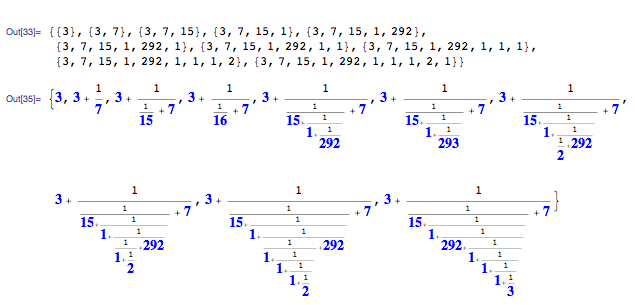Mathematica 18 17 chars
I chose to use, as a measure of "best", the number of terms in a continued fraction representation of π. By this criterion, the best rational approximations of π are its convergents.
There are 10 convergents of π with a denominator less than one million. This is fewer than the requested 167 terms, but I am including it here because it may be of interest to others.
Convergents[π, 10]
(* out *)
{3, 22/7, 333/106, 355/113, 103993/33102, 104348/33215, 208341/66317,
312689/99532, 833719/265381, 1146408/364913}
If you really want to see the denominator for the first convergent, it will cost an additional 11 characters:
Convergents[π, 10] /. {3 -> "3/1"}
(* out *)
{"3/1", 22/7, 333/106, 355/113, 103993/33102, 104348/33215,
208341/66317, 312689/99532, 833719/265381, 1146408/364913}
For those who are interested, the following shows the relations among the convergents, partial quotients, and continued fraction expression of convergents of π:
Table[ContinuedFraction[π, k], {k, 10}]
w[frac_] := Row[{Fold[(#1^-1 + #2) &, Last[#], Rest[Reverse[#]]] &[Text@Style[#, Blue, Bold, 14] & /@ ToString /@ ContinuedFraction[frac]]}];
w /@ FromContinuedFraction /@ ContinuedFraction /@ Convergents[π, 10]

Please excuse the inconsistent formatting of the continued fractions.


a/bor isa balso allowed? \$\endgroup\$